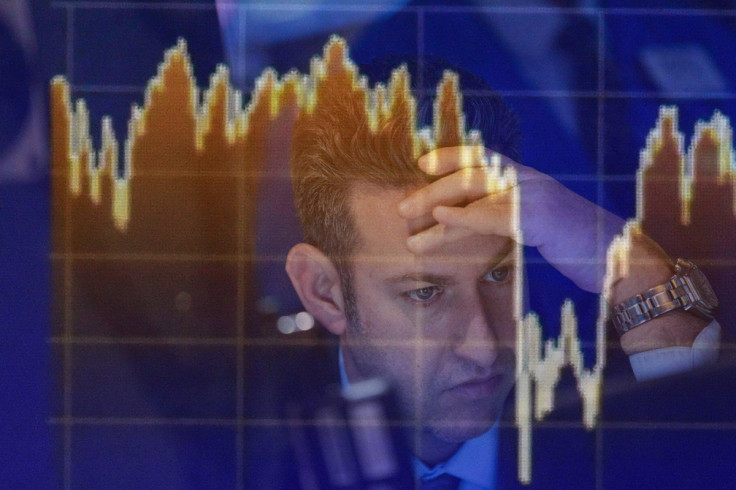Do high frequency trading algorithms create more volatility than humans?

In a recent speech, the Financial Conduct Authority asked whether algorithmic and high-frequency trading (HFT) has become a contributing factor to price volatility and how greater electronification may be affecting market quality and resilience.
Speaking at FIX 2016 EMEA Trading Conference last week, Edwin Schooling Latter, head of Markets Policy, FCA, said in markets where electronic and automated trading are already the norm, such as cash equity and more liquid exchange-traded derivative markets, we have seen a continuing race to be the fastest, with firms competing to shave off milliseconds, then microseconds, to ever more finer margins.
He referred to extreme price movements over short timeframes seen across a wide range of markets, from equities to FX, as well as fixed income and sovereign bonds – areas where HFT techniques have extended in some countries.
Schooling Latter referred specifically to the 2014 flash rally in the price of US Treasuries, which he said raises "uncomfortable questions" about whether changes in market structure are making key fixed income markets – which can have a major impact on the value of many other assets – more susceptible to price strikes.
He said: "One argument is that in more traditional market making arrangements, with humans making judgements based on news, and with time to think, rather than computers interacting on the basis of pre-programmed instructions in response to other transactions more quickly than humans can think, we are less likely to see price swings that manifestly cannot be justified by any change in fundamental factors."
Professor Avanidhar Subrahmanyam at UCLA, an expert on stock market activity and behavioural finance, is the author of a published a paper titled, Limit Order Placement by High-Frequency Traders. The paper asserts that HFT firms can strategically manage their limit orders in anticipation of short-term price movements more effectively than non-HFT firms.
Subrahmanyam disagreed with the suggestion made by the FCA that humans precipitate less in the way of unexplained price swings. He told IBTimes UK: "This is not true. Whatever evidence we have suggests HFTs reduce volatility. This happens because HFTs demand as well as supply liquidity. Speedy provision of liquidity (absorption of order imbalances) is valuable. Humans are slower in doing so."
The FCA also referred to arguments that HFT liquidity providers don't have the deep balance sheets of more traditional market makers and are consequently perhaps less able and less willing to take positions that can help keep prices stable during temporary imbalances of buy and sell orders.
Subrahmanyam agreed that HFT balance sheets are not as massive as those of banks. "But HFTs complement traditional market makers not substitute for them. Nobody is stopping large banks from continuing to stabilise markets by providing liquidity," he pointed out.
Subrahmanyam dispelled the fear that trading algorithms can turn rogue at any time and cause damaging chain reactions across markets in short timeframes. "I cannot think of any other massively disruptive episode beyond the flash crash. That was done by a rogue trader who submitted a massive fleeting order. Regulating such practices is far better for markets than banning categories of trading," he said.
Referring to nefarious trading activities, he said: "The main issue used to be spoofing: submitting a large order fleetingly, hoping for disruption in a specific direction and then cancelling. This practice has been banned, to my knowledge. Another practice called frontrunning (submitting a same-direction order ahead of another order to drive up the price and profit from an unfavourable price of the outside order) exists to varying degrees."
Subrahmanyam maintained there is no evidence that intradaily volatility has increased with the advent of HFTs; instead it seems to have decreased.
He added: "Overall, I am not sure the debate is cast in the right frame of reference. Really HFT does not impact the small investor much, who trades infrequently. With spreads being so low (at 0.01p or even lower), an infrequent investor does not really care about millisecond-based trading. Those who care are the larger banks who execute multi-million orders frequently. It is debatable if we should make policy to help out these banks. Better to let markets function unimpeded."
Machine learning is playing a more prominent role in the functioning of markets as computational power ramps up. Subrahmanyam agreed that algos could be effectively used to police themselves. He said: "It is relatively straightforward to combine information in past order flow and trading in related securities to construct trading indicators. Machine learning speeds up the process and is far more nimble than humans."
In his speech, the FCA's Schooling Latter made the point perhaps electronic markets simply give increased visibility to price volatility. "In an old-style voice market, would the spike in prices have been manifest instead as the dealer not picking up the phone, or declining to offer a price but asking to call back in a few minutes?
"As CFTC Chairman Timothy Massad saliently pointed out in a recent speech: 'Contrary to what some have suggested, I suspect it was difficult for market makers in the pre-electronic era to routinely maintain tight and deep spreads during volatile conditions. They likely took long coffee breaks.'"
© Copyright IBTimes 2025. All rights reserved.






















